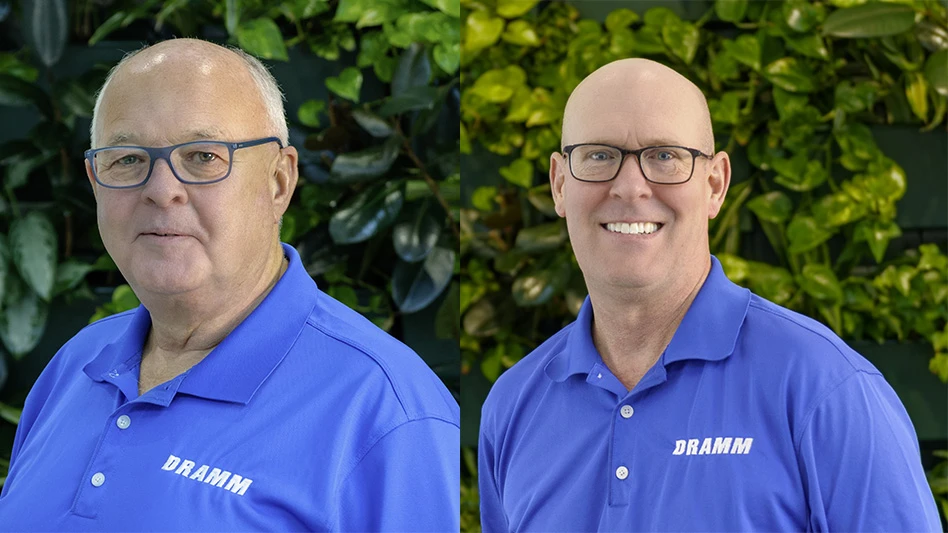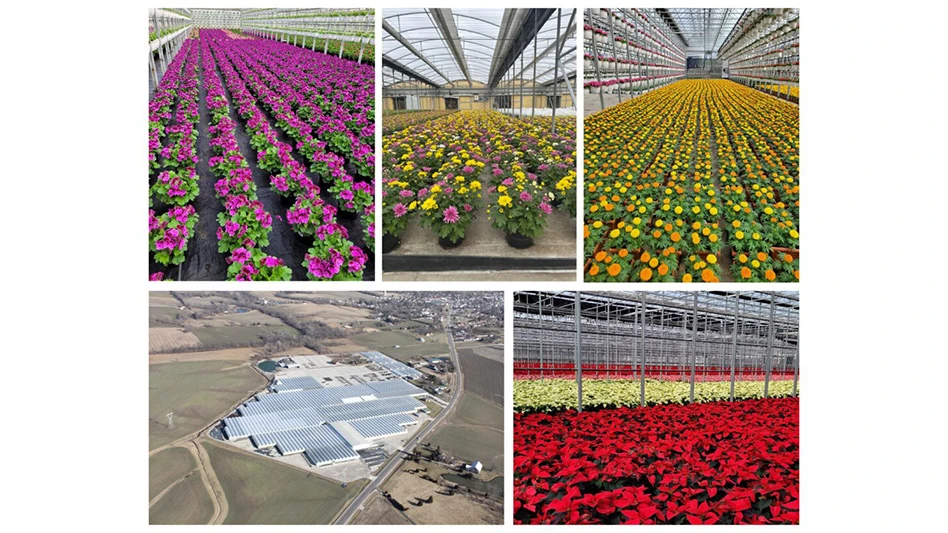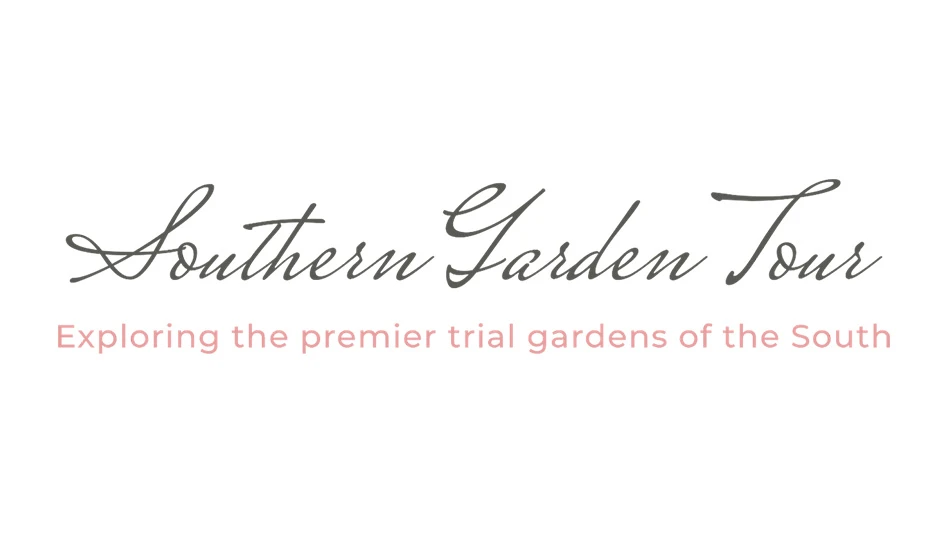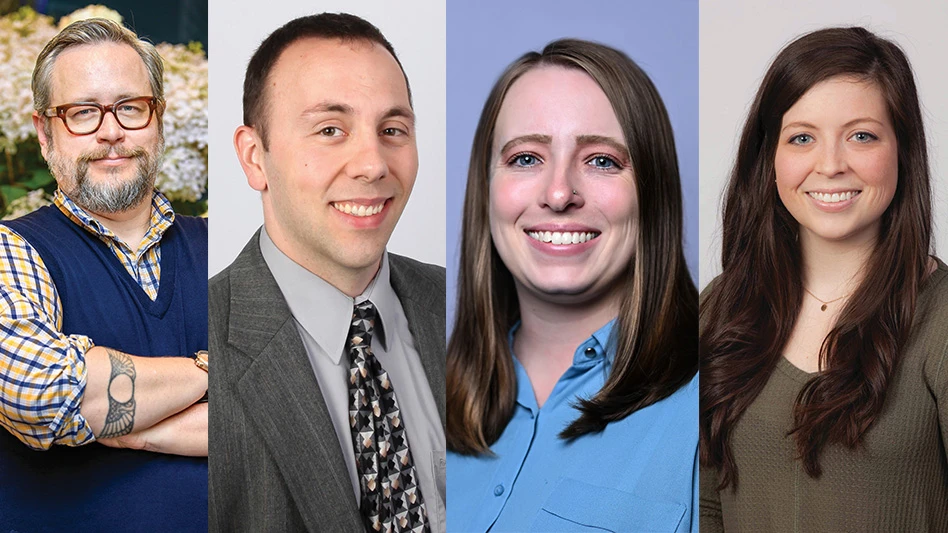
Tom Knezick has noticed a lack of youth in the nursery industry, and he gets it. “I can definitely see why,” he says. “It’s a tough business, and the only reason I got into it was because my dad had it. My brother and I, we were looking elsewhere. I went to school not so I could come back here, but work somewhere else.”
But by the time he was ready to graduate, he had changed his mind. He decided to return to the family business in June 2014, and apply the skills he learned earning a degree in agricultural business from State University of New York Cobleskill.
Pinelands Nursery is a wholesale grower of trees, shrubs, and herbaceous perennials. The nursery was founded by Tom’s parents, Don and Suzanne Knezick, in 1983.
With the adoption of federal and state environmental legislation, such as the Pinelands Protection Act, the Clean Water Act and most recently, NPDES Phase II stormwater regulations, the company completely shifted its focus to the production of native plants.
In the late 1980s, Pinelands Nursery started supplying coir logs and mats for streambank stabilization and bio-engineering projects. The company now offers a full line of erosion control blankets, hydro-mulches, geotextiles and silt fence.
In 2006 the company introduced its own custom-blended seed mixes for stormwater management basins and construction sites. The aim was to become a “one stop shop” for all of a landscape contractor’s erosion control and seeding needs.

Today, Pinelands Nursery is one of the largest native plant nurseries in the U.S., supplying millions of plants for environmental restorations throughout the Mid-Atlantic states.
But while the nursery’s growth to this point has been dictated by an interest in native plant propagation, and the opportunities provided by the aforementioned legislation, 26-year-old Tom Knezick believes he can help Pinelands Nursery develop a strategic plan.
“My dad started this business before I was born,” Knezick says. “He even admits that he did a lot of things by the seat of his pants, and gotten lucky that we’re where we are today. But we’re at the size now where we need to do things more strategically.”

Tom’s goals for the family business are fairly simple. He wants to analyze what the nursery does, put it down on paper as a benchmark, have an actual plan and follow through on it.
He’s bringing big-business concepts to a business that in many ways, still operates like a small operation. In his role of production analyst, Knezick analyzes the nursery’s financial position, models and tracks it. From there, he’s able to estimate revenue instead of “just seeing how the money comes in.”
“We’re really not looking to change what we do as a nursery, but the process of how we do it,” Knezick says.
For example, everyone knew the nursery’s plugging line was slower than it should be, but no one had been able to figure out how to address the long-standing problem. A few years ago while walking the trade show floor at MANTS, Knezick found a hand-operated system that showed potential. The nursery bought the machine, applied it and found it could match the output of the old seven-person line with three fewer people, and take less time to do it.
He also looks for small ways to improve processes, like adjusting where people work on a conveyor belt.
“Instead of having two people in this spot, if we spread them out differently or on different sides of the bench, you could get away with one less person or turn it up faster,” Knezick says. “It’s not always a million dollar fix. Sometimes it’s a couple bucks, but that couple bucks multiplied over a few weeks or months will add up to a decent savings.”
Aside from looking for ways to improve the production process, Knezick has been heavily involved with Pinelands’ wildflower seed business. The nursery collects and propagates wild seed at locations in New York, New Jersey, Virginia and Ohio. It provides customers with local provenance seed, used for ecological restoration projects. Straight seed and custom mixes are available, as well as mixes for particular types of jobs: stormwater basin mix or meadow pollinator mix.

Knezick has been tracking the seed production, ensuring the company knows how much is available and how much it will cost in labor and land.
Another goal Knezick is working on is the establishment of a one-year, five-year and 10-year strategic plan. He’s doing the groundwork now by tracking production in a measurable way, so he can use those benchmarks in the future.He’d like to arrange a separate talk with each member of the management team, in which they would discuss their thoughts about the future of the nursery. Then, the whole group would meet to discuss the ideas. From there, he could compile a plan that makes sense, and include the entire company in the process. It’s crucial to get buy-in from everyone, not just the owners, he says.
Working in a family business is a familiar challenge for many nurserymen. Tom’s parents are president and vice president of the company, and his younger brother Steve is the assistant propagator. Tom believes it’s important for everyone to be treated equally, and to leave personal matters at home. But it can be tricky.
“You’re in a professional setting and you’re also in a family setting,” he says. “Sometimes those lines aren’t always clear-cut. You have to make those lines as clear as you can.”

Explore the March 2016 Issue
Check out more from this issue and find your next story to read.
Latest from Nursery Management
- Terra Nova Nurseries introduces rust-free and disease-resistant heucherella
- John T. Nickel, founder of Greenleaf Nursery Co., passes away at 89
- Three tours offered at 2025 Farwest Show
- Garden Media Group announces sixth annual Women in Horticulture Week
- Star Roses and Plants announces National Knock Out Rose Day
- The Growth Industry Episode 4: How federal budget cuts are affecting horticulture nonprofits
- Pennsylvania Horticultural Society shares top gardening trends from 2025 Philadelphia Flower Show
- California Spring Trials 2026 dates announced





